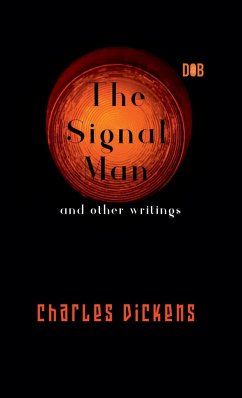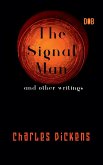This collection of stories is made up of Twelve original and imaginative tales by Charles Dickens including his masterpiece, "The Signal Man" as well as "The Story of the Goblins Who Stole a Sexton", "The Trial for Murder", "The Wreck of the Golden Mary", "Three Detective Anecdotes", "To Be Read at Dusk", "What Christmas Is", "As We Grow Older", "Our Bore", "Our English Watering-Place", "Our French Watering-Place" & "Our Honourable Friend".
Hinweis: Dieser Artikel kann nur an eine deutsche Lieferadresse ausgeliefert werden.
Hinweis: Dieser Artikel kann nur an eine deutsche Lieferadresse ausgeliefert werden.








